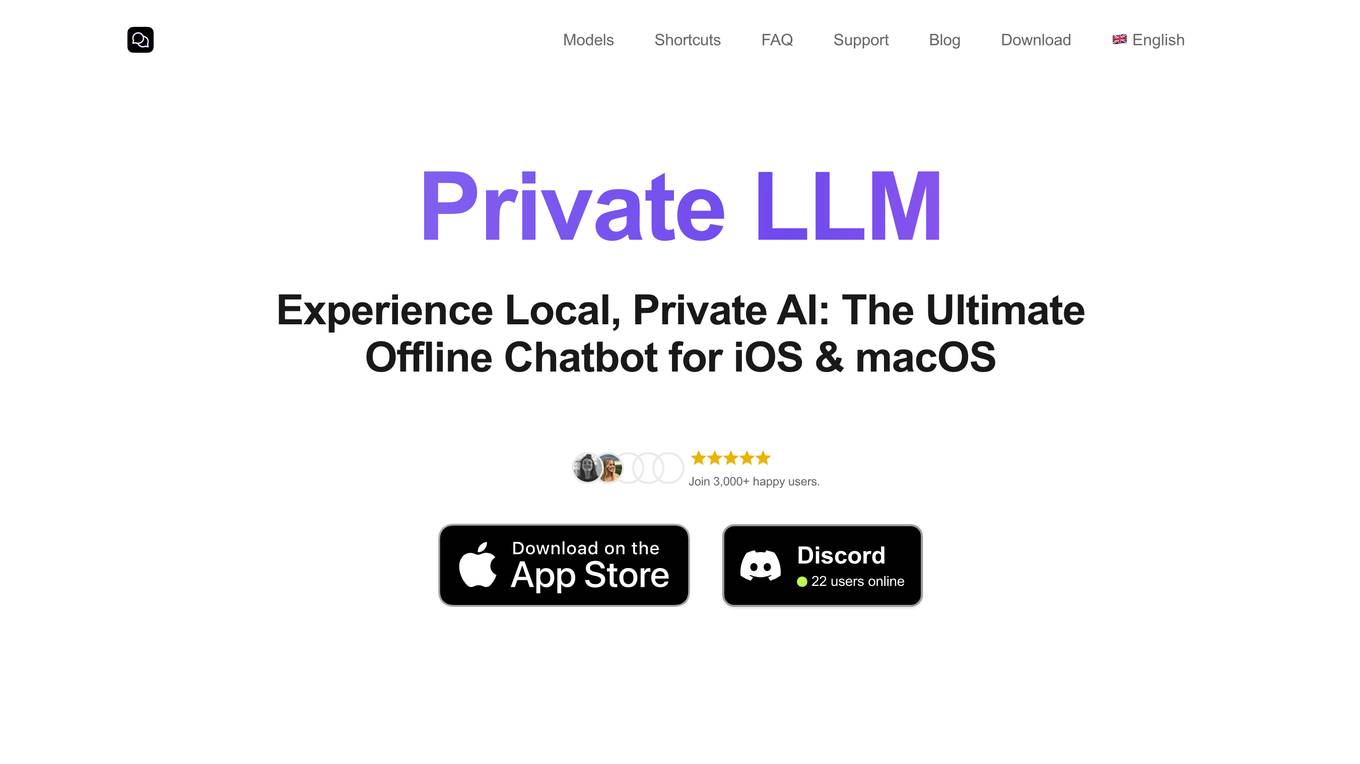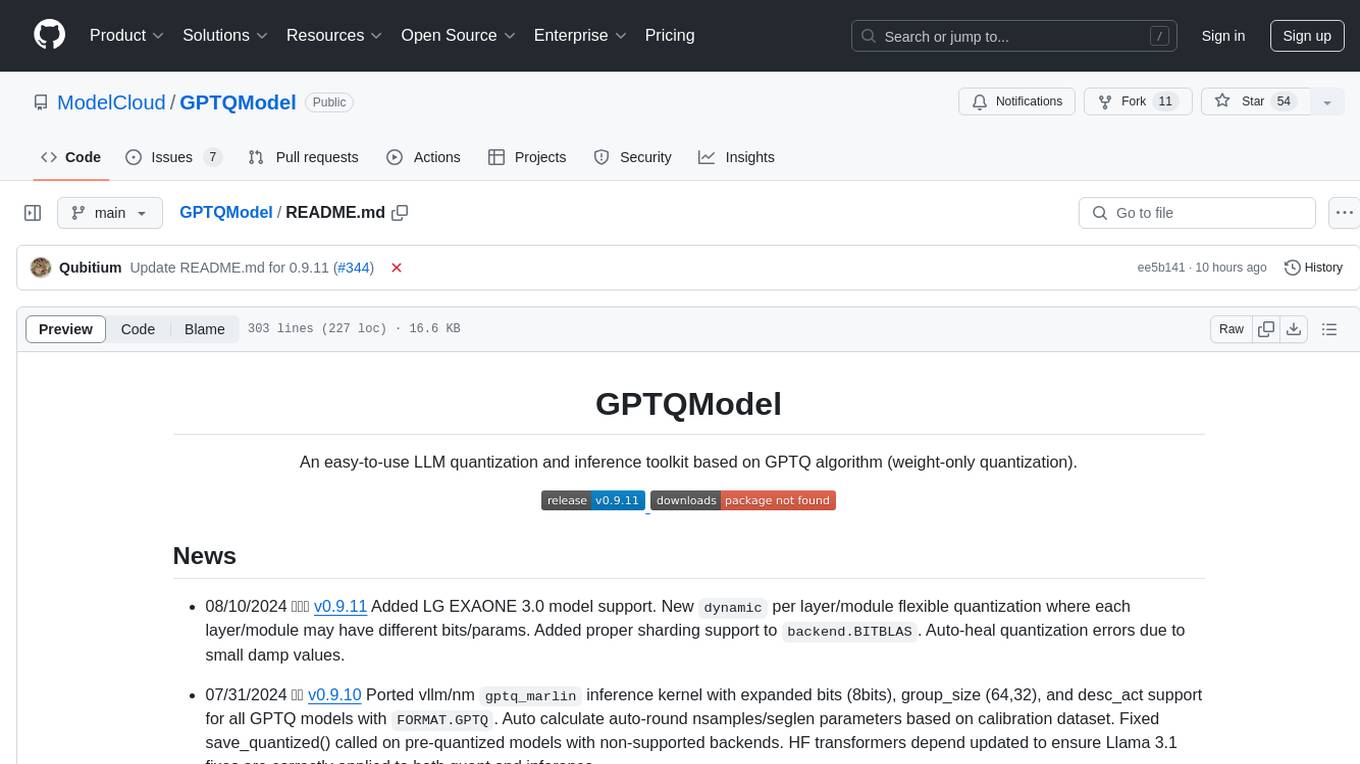Best AI tools for< Quantization Engineer >
Infographic
1 - AI tool Sites

Private LLM
Private LLM is a secure, local, and private AI chatbot designed for iOS and macOS devices. It operates offline, ensuring that user data remains on the device, providing a safe and private experience. The application offers a range of features for text generation and language assistance, utilizing state-of-the-art quantization techniques to deliver high-quality on-device AI experiences without compromising privacy. Users can access a variety of open-source LLM models, integrate AI into Siri and Shortcuts, and benefit from AI language services across macOS apps. Private LLM stands out for its superior model performance and commitment to user privacy, making it a smart and secure tool for creative and productive tasks.
1 - Open Source Tools

GPTQModel
GPTQModel is an easy-to-use LLM quantization and inference toolkit based on the GPTQ algorithm. It provides support for weight-only quantization and offers features such as dynamic per layer/module flexible quantization, sharding support, and auto-heal quantization errors. The toolkit aims to ensure inference compatibility with HF Transformers, vLLM, and SGLang. It offers various model supports, faster quant inference, better quality quants, and security features like hash check of model weights. GPTQModel also focuses on faster quantization, improved quant quality as measured by PPL, and backports bug fixes from AutoGPTQ.